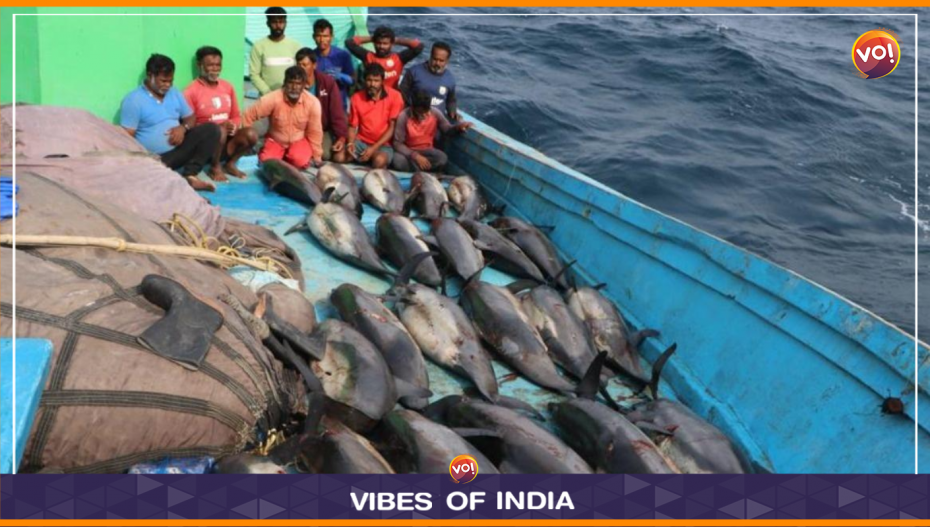What was planned as a one-off raid on wildlife poachers has turned out to be just the tip of the iceberg. The capture of 22 dolphins and four shark carcasses off Porbandar coast last week has blown the lid off a thriving illegal trade. Shark Fin soup is considered a delicacy in China, Japan and South Asian and much sought after for its aphrodisiac qualities.
Interrogation of the 10 fishermen caught with the catch revealed that dolphins were used as bait to trap sharks whose fins were extracted for export. This trade is carried out via Sri Lanka, Hong Kong and Singapore, mostly from south Indian ports.
Not just China, but the demand for shark fins is high in the US and Europe too. To kill the sharks, the fishermen used ages-old harpoons which are now banned. The arrested fishermen narrowed down on Porbandar after the December 2022 dolphin census revealed their sizeable population.
The modus operandi was simple after hunting dolphins, its meat was hung in the net and this would attract sharks as dolphin was the favourite food for the sharks. This is the first instance of dolphins, which enjoy the highest protection under Wildlife Protection Act, being used as baits in Gujarat seas. The carcasses were identified as belonging to bull sharks (found in the sea from Gujarat to the south).
In 2015, India banned the export of these fins which are exclusively harvested for international trade as shark meat is not consumed here. The ban was imposed as fishermen used to extract the fins and leave the sharks to die of heavy bleeding.
A senior forest department officer stated: , “The fishermen admitted using dolphin carcasses as trap sharks. However, they don’t have any direct connection with the international fins trafficking. We are trying to find out whom they were supplying the fins and how the stock was crossing the Indian border.”
They came to Gujarat as the number of sharks is lesser at Tamil Nadu and Kerala coasts. According to sources, the price of Indian fins in the international market is anywhere between Rs 15,000 and Rs 20,000 per kg.
Also Read: US Nominee For World Bank Ajay Banga Likely To Meet Modi During India Visit












